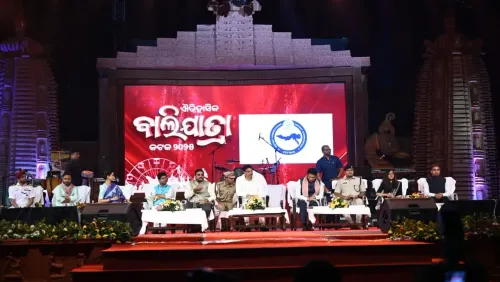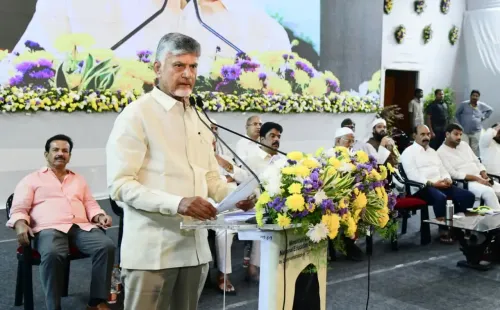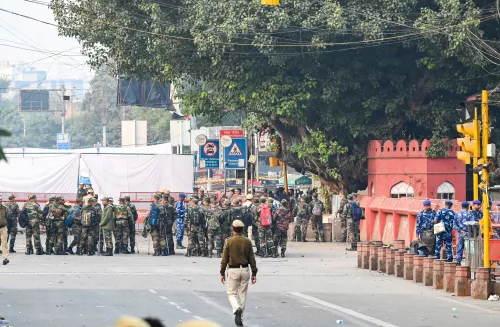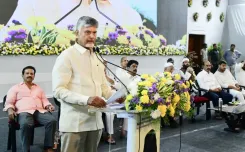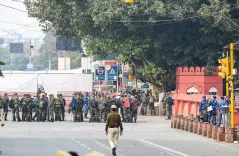Is GRAP-3 Now in Effect in Rajasthan's Alwar and Bharatpur as Air Quality Declines?
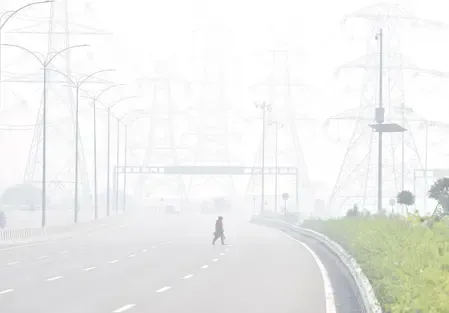
Synopsis
Key Takeaways
- GRAP-3 is now enforced in Rajasthan's Alwar and Bharatpur due to rising pollution.
- Strict vehicle regulations include bans on BS-3 petrol and BS-4 diesel vehicles.
- Non-essential construction and demolition activities are halted.
- Schools for up to Class 5 will transition to online classes.
- Transport routes may face significant disruptions.
Jaipur, Nov 12 (NationPress) Due to the concerning increase in pollution levels within the National Capital Region (NCR), including Delhi, the Central government has enacted the third phase of the Graded Response Action Plan (GRAP-3).
As part of this initiative, restrictions previously enforced in Delhi and neighboring areas are now being applied to the districts of Alwar and Bharatpur in Rajasthan, both situated within the NCR. Under GRAP-3, stringent measures are being implemented to address the worsening air quality. The use of BS-3 petrol and BS-4 diesel vehicles has been entirely prohibited in Delhi-NCR, a regulation that will also affect vehicles in Alwar and Bharatpur.
As a result, vehicles traveling from Rajasthan to Delhi will be halted, with only cargo vehicles carrying essential goods allowed to pass. These new restrictions are likely to disrupt transport routes through Bharatpur, Alwar, and Bhiwadi, potentially stranding numerous vehicles on highways.
The Commission for Air Quality Management (CAQM) stated that the decision to enforce GRAP-3 was driven by a significant rise in Delhi’s Air Quality Index (AQI), which jumped from 362 to 430, categorizing it as ‘severe’.
These measures are supplementary to the existing restrictions under GRAP Stages 1 and 2.
Currently, Alwar's AQI is at 120, but the regulations will still apply as a precautionary measure; in contrast, Bhiwadi’s AQI has reached 380, reflecting hazardous air quality. According to the GRAP-3 guidelines, private BS-3 petrol and BS-4 diesel vehicles will be banned, non-essential construction and demolition activities will be halted, and trucks carrying materials like cement and sand will not be allowed.
Diesel buses from both within and outside Delhi will remain prohibited, and schools for grades up to Class 5 will close, transitioning classes to online formats. Furthermore, operations of stone crushers and mining will be suspended, diesel generators will only be allowed for emergencies, and offices will be urged to switch to work-from-home or hybrid models. Alongside the pollution issue, cold weather conditions have intensified across Rajasthan over the last 24 hours.
The minimum temperature has dropped below 10 degrees Celsius in nine cities, with Fatehpur recording the lowest at 6.9 degrees. In the state capital, Jaipur, the minimum temperature was noted at 13.6 degrees.


